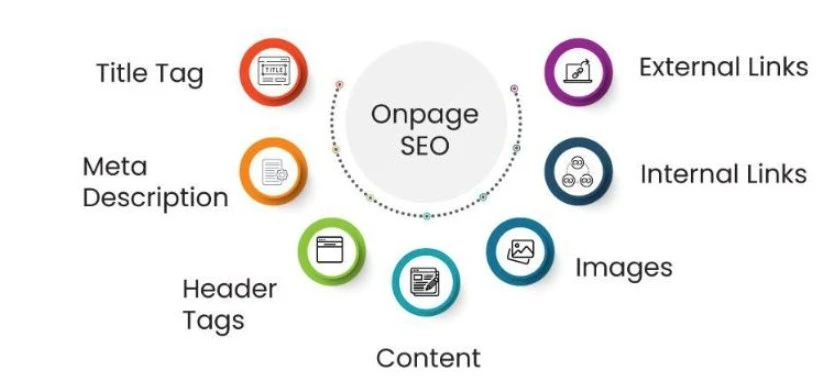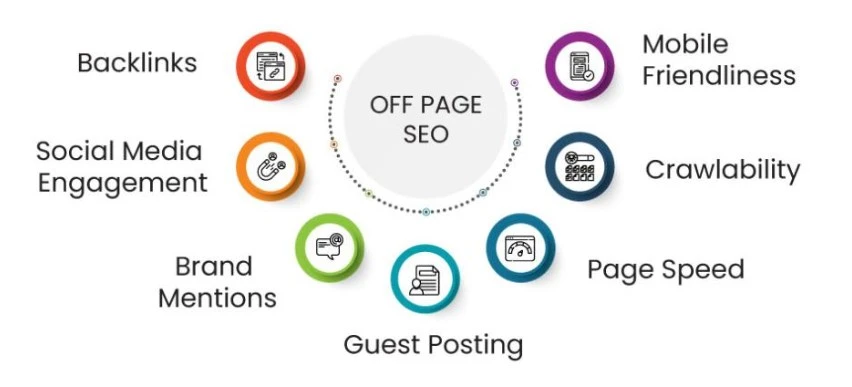
Strategies you implement for Search Engine Optimization (SEO) can dramatically enhance your website’s visibility, attracting more customers and driving valuable leads to your business. By understanding and employing effective SEO techniques, you can ensure that your site not only ranks higher in search engine results but also resonates with your target audience. With the Mister Nguyen Agency’s expertise in leveraging SEO alongside social media and design branding, you can optimize your online presence for the best results, leading to sustainable growth and increased traffic to your website.
Understanding SEO
Your journey to driving organic traffic begins with a solid grasp of Search Engine Optimization (SEO). This robust marketing strategy encompasses various techniques designed to bolster your website’s visibility on search engines. By understanding the principles of SEO, you can create a digital footprint that not only attracts visitors but converts them into loyal customers. It’s a critical element for any business seeking to enhance its online presence and distinguish itself in the crowded digital marketplace.
Definition of SEO
Definition of SEO centers on the strategies and practices used to improve the ranking of your website in search engine results pages (SERPs). SEO operates by making your website more appealing to search engines, which ultimately enhances its visibility for relevant search queries. This process involves a mixture of keyword research, content optimization, technical improvements, and quality backlinks—all tailored to align your website with the needs and interests of your target audience.
By optimizing elements such as meta tags, headers, and on-page content, you can directly attract organic traffic that is more likely to convert into leads and sales. For instance, if you’re a web development agency like Mister Nguyen Agency, using localized keywords like “web development agency in Nagpur” can help you capture the attention of local customers looking for your services.
The Importance of SEO for Businesses
Any business aiming to thrive in today’s digital landscape must recognize the importance of SEO. As consumer behavior shifts increasingly online, having a well-optimized website is crucial for connecting with potential customers. A strong SEO strategy not only facilitates higher rankings in search results but also fosters credibility and trust among your audience. Businesses leveraging SEO effectively can anticipate increased organic traffic, ultimately leading to more customers and sales.
Another key factor is that SEO represents a cost-effective method for lead generation compared to traditional advertising. While paid advertising can deliver quick results, it requires continuous financial investment. In contrast, well-implemented SEO strategies yield sustainable results over time, allowing your business to thrive without incurring constant costs. By focusing on organic traffic, you can cultivate a steady flow of leads without the need for ongoing paid promotions.
Key Components of SEO
An effective SEO strategy is built upon several key components that work synergistically to elevate your website’s performance. These components include keyword research, on-page optimization, technical SEO, and off-page strategies like link building and social media engagement. By mastering these elements, you can craft a comprehensive SEO approach that not only drives traffic but also enhances user experience on your website.
This multifaceted approach allows you to leverage various tactics to improve your site’s rankings and visibility. For instance, on-page optimization focuses on refining the content and technical elements of your site, while off-page SEO enhances your authority through backlinks and social interactions. Understanding these key components empowers you to take actionable steps toward improving your site’s performance and reaching your business goals.
Key Takeaways: How SEO Strategies Boost Organic Traffic
1. Optimize website content for relevant keywords and phrases.
2. Utilize meta tags to enhance search engine visibility.
3. Implement quality backlinks to build site authority.
4. Engage customers through active social media strategies.
5. Design a user-friendly website for better customer experience.
6. Target local SEO to attract nearby business leads.
On-Page SEO Strategies

Clearly, implementing effective on-page SEO strategies is crucial for enhancing your website’s visibility and driving organic traffic. These strategies focus on optimizing the content and HTML source code of your pages, ensuring that they align with the relevant search queries from your potential customers. By prioritizing on-page SEO, you not only improve your chances of ranking higher on search engines but also assist in converting visitors into valuable leads for your business.
Keyword Research and Optimization
For successful on-page SEO, keyword research and optimization are two fundamental components. Identifying relevant keywords that your customers are searching for is the first step to attracting organic traffic. This process involves using tools to analyze search behavior and understanding the terms that best describe your business. Incorporate these keywords into your website’s content naturally and strategically to ensure relevance and enhance visibility.
Additionally, optimizing various elements such as headers, alt texts, and internal links with these keywords can significantly bolster your search engine rankings. By ensuring that your keywords match user intent, you can create a more compelling and user-friendly experience that converts visitors into leads.
Meta Tags and Titles
Research indicates that well-crafted meta tags and titles are vital to your on-page SEO success. These elements serve as your website’s first impression on search engine results pages (SERPs), making it crucial to choose engaging and relevant titles that incorporate your target keywords. Meta descriptions should provide a clear summary of the content while enticing users to click through to your website.
Optimization of these tags means ensuring your title tag is within the recommended character limit of 60 characters and that your meta description remains concise, ideally between 150-160 characters. This careful balance helps improve click-through rates while ensuring your content remains relevant and authoritative.
Content Quality and Relevance
One of the most critical aspects of on-page SEO is the quality and relevance of your content. Search engines prioritize content that provides value to users, so creating high-quality articles, blog posts, and resources should be your top priority. Your content should be informative, engaging, and tailored to address your customers’ needs and pain points, thereby fostering a connection and encouraging them to explore your business further.
To enhance your on-page SEO, regularly update your content to reflect the latest industry trends and customer interests. This not only keeps your audience engaged but also signals to search engines that your website is active and relevant, thus improving your rankings over time.
User Experience and Site Navigation
On-page SEO isn’t solely about keywords and content; user experience plays a significant role in how your website performs in search rankings. A well-structured website that allows for intuitive navigation encourages visitors to stay longer and explore more. Simple and organized navigation makes it easy for your customers to find what they’re looking for and reduces bounce rates—factors crucial for achieving higher organic traffic.
For instance, utilizing clear labels for your menu items and ensuring that your site is mobile-friendly can greatly enhance user engagement. Ensuring that your website loads quickly and provides a seamless experience across devices can set you apart from competitors, ultimately turning visitors into loyal customers.
Off-Page SEO Strategies

All businesses looking to enhance their visibility online should prioritize off-page SEO strategies as a fundamental part of their overall SEO approach. While on-page SEO optimizes your website’s internal elements, off-page SEO involves actions taken outside of your website to improve its authority and reputation on search engines. This multifaceted strategy not only helps boost your website’s ranking but also attracts more organic traffic, which can lead to increased customers and leads for your business.
Backlink Building Techniques
The significance of backlinks in off-page SEO cannot be overstated. By earning high-quality backlinks from reputable websites, you signal to search engines that your content is valuable and trustworthy. Start by identifying relevant websites in your industry, and reach out to them for guest blogging opportunities, collaborations, or link exchanges. This approach not only diversifies your backlink profile but also exposes your website to new audiences, ultimately driving more organic traffic.
In addition to guest blogging, consider creating shareable content that can naturally attract backlinks over time. Infographics, comprehensive guides, and informative videos are excellent resources that other websites may find valuable enough to reference. By using these backlink building techniques, you enhance your website’s credibility and authority, which are critical components of an effective off-page SEO strategy.
Social Media Influence on SEO
Any successful SEO strategy today must integrate social media as a crucial element. Social media platforms not only serve as channels for promoting your content but also drive traffic to your website, enhancing its exposure. When you share your content across various platforms, it encourages engagement, which can result in shares and backlinks from other users, amplifying your content’s reach and potential visibility on search engines.
This synergy between social media activity and SEO enhances your overall digital presence and allows you to connect with your customers more meaningfully. When your business engages with users on social platforms, it builds brand loyalty and credibility, encouraging customers to interact with your website and boosting organic traffic. Staying active on social media can effectively complement your SEO efforts and elevate your brand’s visibility.
Local SEO Tactics
Building a strong local presence is important for businesses targeting specific geographical areas. Local SEO tactics involve optimizing your online presence to attract more customers from relevant local searches. Ensure that your business is listed on Google My Business, and consistently updated with accurate information such as your address, phone number, and business hours. Additionally, leveraging local keywords such as “company in Nagpur” not only helps you connect with your target audience but also enhances your website’s relevance for local search queries.
Techniques such as gathering positive customer reviews, engaging with local social media groups, and creating localized content can significantly contribute to your local SEO efforts. As you build authority within your community and establish strong local backlinks, you enhance your business’s visibility to potential customers searching for services in your area.
Online Reputation Management
To ensure enduring success, effective online reputation management is important. This involves monitoring and influencing how your business is perceived online. Encourage satisfied customers to leave reviews on popular platforms and social media channels. The more positive feedback your business garners, the more likely it is to attract new customers, generate leads, and enhance your credibility in the eyes of search engines.
Social proof, such as glowing reviews and testimonials, plays a crucial role in shaping your online reputation. Consistently managing and responding to customer feedback—both positive and negative—demonstrates that you value their opinions. This proactive approach not only helps maintain a positive image online but also boosts your brand’s authority, which can lead to improved search engine rankings and increased organic traffic.
Technical SEO Enhancements

Keep in mind that implementing technical SEO enhancements is crucial for ensuring your website can be easily crawled and indexed by search engines, ultimately leading to increased organic traffic. At Mister Nguyen Agency, we recognize that these technical elements create a solid foundation for your overall SEO strategy. By enhancing your website’s technical aspects, you can improve both user experience and search visibility, which directly impacts your ability to attract and convert customers.
Site Speed Optimization
On a technical level, site speed optimization plays an integral role in retaining users and improving search engine rankings. Research shows that a mere one-second delay in loading times can reduce conversions by 7%, highlighting the importance of a fast-loading website. By optimizing images, leveraging browser caching, and utilizing a content delivery network (CDN), you can create a seamless experience for your visitors, keeping them engaged with your content and business offerings.
Moreover, Google factors site speed into its ranking algorithms. Therefore, ensuring your website loads quickly not only enhances user experience but also positively impacts your site’s visibility on search engine results pages (SERPs). At Mister Nguyen Agency, our team can assist you in implementing effective site speed optimization strategies to transform your website into a speedy asset that attracts and retains leads.
Mobile Responsiveness
Any effective SEO strategy in today’s digital landscape must prioritize mobile responsiveness. With over 55% of global web traffic coming from mobile devices, it is vital that your website adapts smoothly to various screen sizes. A mobile-responsive design ensures that your customers have an optimal viewing experience, whether they are browsing from a smartphone, tablet, or desktop. This adaptability not only reduces bounce rates but also improves your site’s ranking potential on search engines.
Enhancements to mobile responsiveness can involve simplifying navigation, ensuring your content is easily readable without zooming, and optimizing images for faster loading on mobile networks. By creating a mobile-friendly site, you are likely to capture and retain the attention of more customers, thus increasing your chances of generating leads. This commitment to mobile optimization is paramount to succeeding in the competitive digital landscape.
Structured Data Markup
Responsiveness is not the only technical feature you should focus on; structured data markup is another powerful enhancement that can boost your website’s organic traffic. By adding structured data to your web pages, you help search engines better understand your content and its context, which can lead to enhanced visibility in search results. This markup allows search engines to display rich snippets, which often result in higher click-through rates (CTR), providing your business with more exposure to potential customers.
With structured data, you can provide valuable information about your business’s offerings directly in the search results. This might include ratings, prices, or availability, which can entice users to click on your link over others. Implementing structured data not only helps with visibility but also positions your brand as a trustworthy and authoritative source in your industry.
XML Sitemaps and Robots.txt
Markup plays a fundamental role in guiding search engines on how to crawl your website. By creating and submitting an XML sitemap, you provide search engines with a roadmap of your site’s structure, facilitating the indexing of your pages. Additionally, a well-configured robots.txt file instructs search engines which pages to crawl and which to exclude. Having these elements in place ensures that your important pages are not overlooked, significantly enhancing your website’s SEO performance.
Understanding how to utilize XML sitemaps and robots.txt effectively can drastically improve your website’s visibility in search results. When you provide clear guidance through these tools, it simplifies the process for search engines, allows you to prioritize your content, and ultimately leads to increased organic traffic. Mister Nguyen Agency can assist you in optimizing these vital components to ensure your website is both user and search engine-friendly.
Measuring SEO Success

Many businesses underestimate the importance of measuring their SEO success. Understanding how your strategies are performing not only helps you gauge your current standing but also allows you to make informed decisions to enhance your online visibility. At Mister Nguyen Agency, we emphasize the significance of analyzing data to ensure that your website is consistently attracting organic traffic and converting visitors into customers and leads.
Using Analytics Tools
An effective way to measure SEO success is by leveraging analytics tools, such as Google Analytics and SEMrush. These tools provide you with valuable insights into your website’s performance, including traffic sources, user behavior, and conversion rates. By setting up goals and tracking important metrics, you can identify the effectiveness of your SEO strategies and make data-driven modifications when necessary.
An analytics platform can also help you assess the impact of your SEO efforts on social media and your overall brand design. By analyzing metrics such as bounce rates and session duration, you can understand how users interact with your content, allowing you to tailor your website to better meet the needs of your customers. This, in turn, can lead to improved engagement and higher lead conversion rates.
Key Performance Indicators (KPIs)
Analytics is crucial for identifying the right Key Performance Indicators (KPIs) tailored to your specific business goals. Common KPIs for measuring SEO success include organic traffic growth, keyword rankings, click-through rates, and conversion rates. By focusing on these indicators, you can better understand how your SEO strategies are contributing to the overall success of your business.
Measuring these KPIs allows you to track progress over time and ensure your SEO efforts align with your business objectives. For example, if you observe an increase in organic traffic but a dip in conversion rates, this may highlight a need to optimize your content or website design for better user experience.
Monitoring SERP Rankings
Analytics does not only stop at tracking website traffic; monitoring your rankings on Search Engine Result Pages (SERPs) is equally important. By tracking your keyword rankings regularly, you can see if your optimization efforts are paying off. Tools like Ahrefs and Moz can help you monitor shifts in rankings, allowing you to identify which keywords are driving traffic and which ones need more attention.
With consistent monitoring of SERP rankings, you can adapt to changes in search algorithms and market trends. This proactive approach enables you to stay ahead of competitors and maintain your position on the first page of search results, which is vital for ensuring your business remains visible to potential customers.
Adjusting Strategies Based on Data
KPIs serve as critical indicators for adjusting your SEO strategies based on gathered data. If you notice certain strategies yielding better results than others, it’s necessary to allocate more resources to these successful tactics. Regular reviews of your data can help pinpoint areas needing improvement, thereby enabling you to refine your approach continually.
Rankings play an necessary role in informing your strategy adjustments. For instance, if specific keywords are underperforming, you may need to revisit your content or strengthen your backlink strategy. By using data as your guide, you can make informed decisions that directly impact your website’s performance and ultimately drive more leads for your business.
Common SEO Mistakes to Avoid
To maximize the effectiveness of your SEO strategies and boost organic traffic, it’s imperative to steer clear of common mistakes that can undermine your efforts. Addressing these pitfalls not only improves your website’s visibility but also enhances user experience, ultimately helping your business attract and retain customers while generating valuable leads.
Keyword Stuffing
Stuffing your content with too many keywords is one of the most detrimental mistakes you can make in your SEO efforts. While it’s crucial to use relevant keywords to improve your visibility on search engine result pages (SERPs), overusing them can trigger penalties from search engines. This practice can lead to a poor reading experience for your audience, as content feels unnatural and forced. Instead of attracting customers, keyword stuffing might drive them away.
Moreover, focusing solely on high-ranking keywords without considering user intent could misalign your content with what your audience is genuinely seeking. A balanced approach, where you naturally integrate keywords with quality content, will not only provide value to your readers but also improve your rankings over time.
Ignoring Mobile Optimization
Mobile optimization is critical in today’s digital landscape. Mobile devices account for a substantial portion of web traffic, making it imperative to ensure your website is responsive and user-friendly on various devices. Ignoring this aspect can lead to high bounce rates and decreased conversion rates, ultimately costing your business both leads and customers.
For instance, if your site does not load properly on mobile devices or if elements are misaligned, users are likely to leave and seek more accessible options. Google also prioritizes mobile-friendly websites in its ranking algorithms, indicating that neglecting mobile optimization can harm your organic traffic significantly. Ensure that your design is responsive and that navigation is seamless across all devices to keep your visitors engaged.
Neglecting Site Security
Optimization of site security is often overlooked, yet it is a crucial component of your SEO strategy. A website that lacks proper security measures can not only suffer from search engine penalties but also deter potential customers from interacting with your business. That’s because if your site is flagged as unsafe, users are less likely to trust it and more likely to abandon their shopping experience altogether.
Another important point to consider is that search engines like Google favor secure websites and often display security warnings for those that are not. This can negatively impact your site’s traffic and credibility. Investing in an SSL certificate and implementing other security measures can help safeguard your website, enhance customer trust, and ensure better SEO performance.
Failing to Update Content Regularly
The frequency of content updates can greatly impact your website’s organic traffic. Search engines favor fresh content that reflects current trends and information, so if you neglect to regularly update your site, you risk losing visibility. Additionally, updating your content shows your customers that you are engaged with your business and care about providing them with relevant information.
Mistakes such as leaving old blog posts or product descriptions unchanged for extended periods can lead to your business appearing outdated and can frustrate customers looking for the most current information. To maintain a strong online presence, schedule regular content audits and refresh your website strategically to keep your audience engaged and coming back for more.
To Wrap Up
As a reminder, implementing effective SEO strategies is crucial for enhancing your website’s visibility and driving organic traffic to your business. By optimizing your content with relevant keywords and quality backlinks, you can attract more customers and generate valuable leads without the ongoing costs associated with traditional advertising methods. The long-term sustainability that comes from a well-executed SEO plan means that your website can continue to attract traffic and customers over time, ultimately leading to greater success for your business.
Furthermore, when you collaborate with a professional agency like Mister Nguyen Agency, you gain access to expertise that can help elevate your online presence. By focusing on SEO alongside other digital marketing efforts, such as social media and brand design, you can create a cohesive strategy that maximizes your reach and engagement. Keep in mind, the right SEO approach not only boosts your website’s rankings on search engines but also ensures that you connect effectively with your target audience, driving meaningful interactions and conversions.











